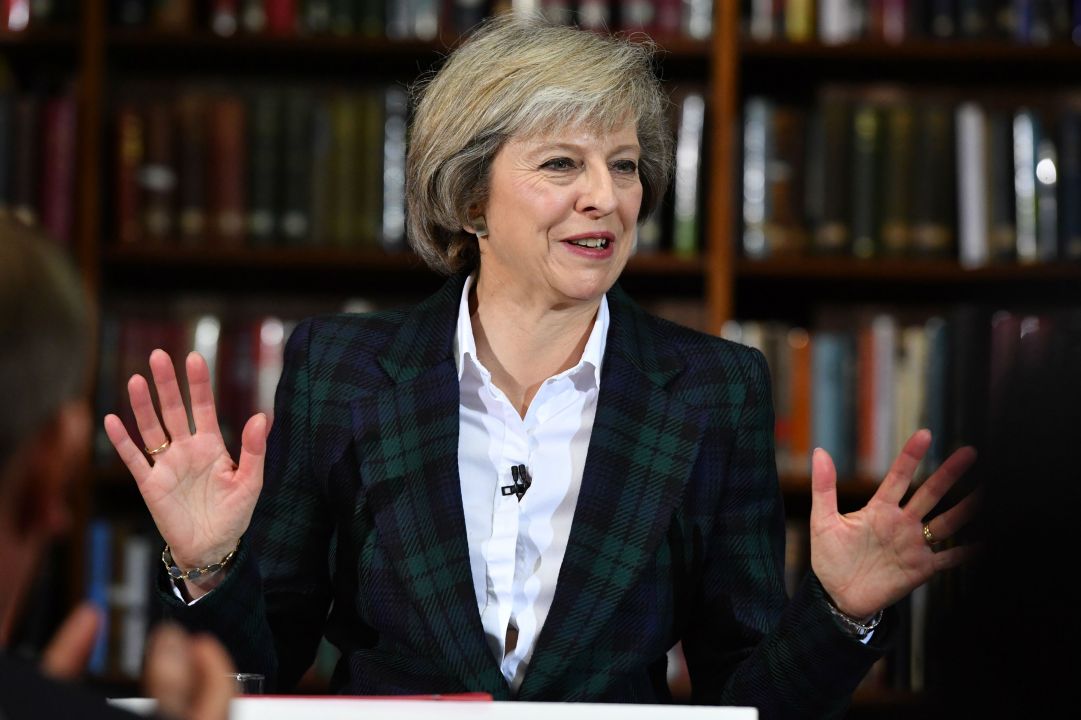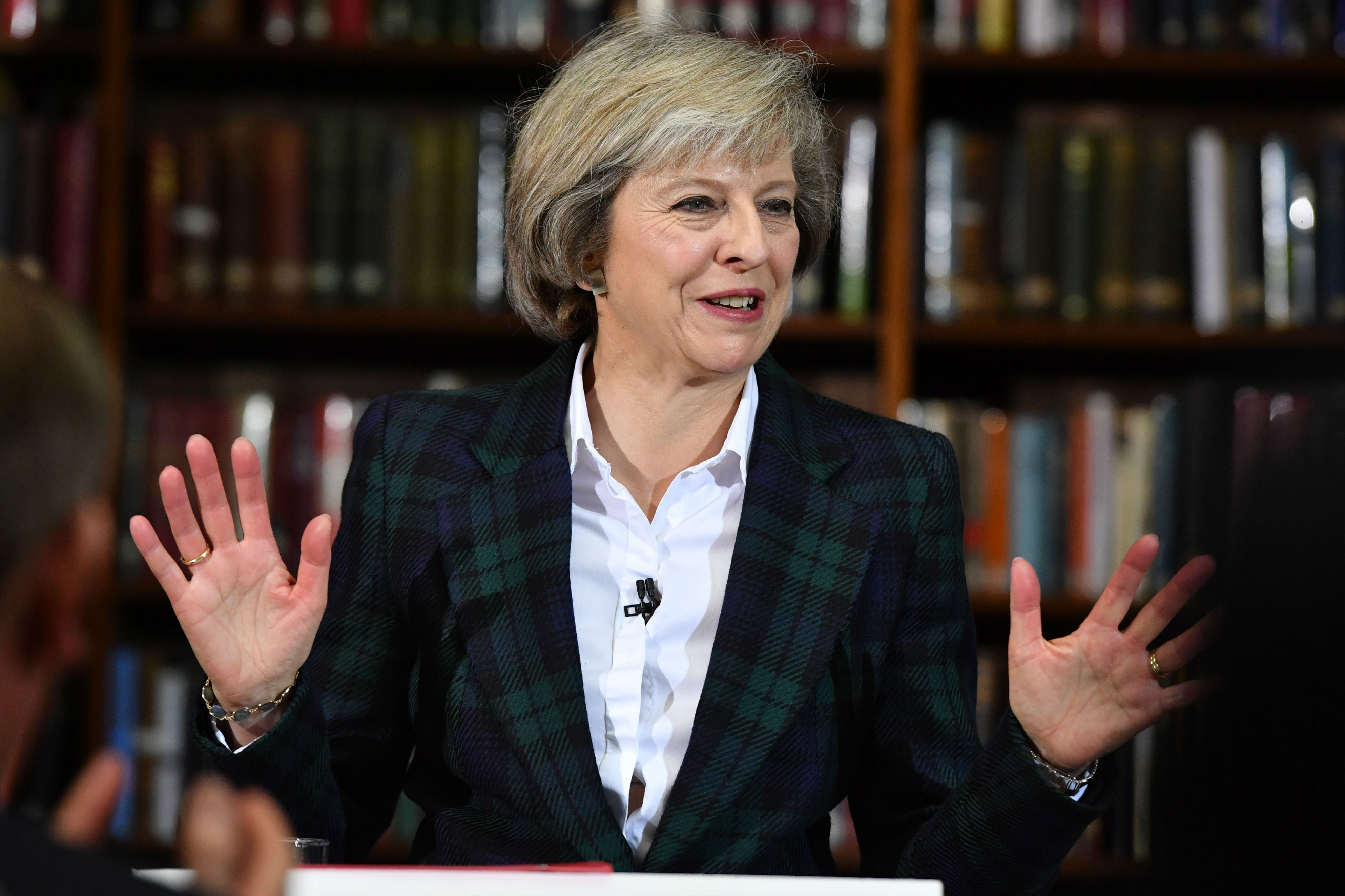And they offer stability and certainty to consumers, employers and investors for the foreseeable future. And I want to reassure foreign governments, international companies and foreign nationals living in Britain that we are the same outward looking and globally-minded and big-thinking country we have always been. And we remain open for business and welcoming to foreign talent. But looking ahead, negotiating the best possible terms as we leave the European Union will be crucial to our future prosperity. And that is going to require strong, proven leadership. I intend, in the coming weeks, to set out in some more detail my proposed negotiating principles. But for now I want to make two important points about the way we conduct this negotiation.
First, nobody should fool themselves that this process will be brief or straightforward. Regardless of the time it takes to negotiate the initial deal, it is going to take a period lasting several years to disentangle our laws, rules and processes from the Brussels machinery. That means it is going to require significant expertise and a consistent approach. I will therefore create a new government department responsible for conducting Britain’s negotiation with the EU and for supporting the rest of Whitehall in its European work. That department will be lead by a senior secretary of state and I will make sure that the position is taken by a Member of Parliament who campaigned for Britain to leave the EU.
The second point is while the ability to trade with EU member states is vital to our prosperity, there is clearly no mandate for a deal that involves accepting the free movement as it has worked hitherto. Now is not the time for me to set out my full negotiating principles, that will come later. But I want to be clear that as we conduct our negotiations, it must be a priority to allow British companies to trade with the single market in goods and services. But also to regain more control of the number of people who are coming here from Europe. Any attempt to wriggle out of that, especially from leadership candidates who campaigned to leave the EU by focusing on immigration will be unacceptable to the public.
So the process of withdrawing will be complex, will require hard work, serious work and detailed work and it means we need a Prime Minister who is a tough negotiator and ready to do the job from day one. But even then, it will not be possible to do what is right for Britain, to get the best deal we can for our country, unless we are united as a party and as a Government. And that is why I believe so strongly that there needs to be a proper contest with a leader elected by the whole party with a proper mandate and no coronation brought about by backroom deals.
We have just emerged from a bruising and often divisive campaign. Throughout I made clear that on balance I favoured staying inside the EU because of the economic risk of leaving, the importance of cooperation on security matters and the threat to the Union between England and Scotland. But I also said that the sky would not fall in if we left. I was open about the costs and the benefits and the risks and the opportunities of EU membership. So now the decision has been made, let’s make the most of the opportunities our departure presents and get out into the world and help British firms to do business all around the globe. Because the task in front of us is no longer about deciding if we should leave or remain. The country has spoken and the United Kingdom will leave the EU.
The job now is about uniting the party, uniting the country, securing the Union and negotiating the best possible deal for Britain. And as you can see from some of my early supporters present here today, Chris Grayling from the Leave campaign, Justine Greening from the Remain campaign, under my leadership, the Conservative Party will be able to come back together and govern not just in the interests of the 17 million Leave voters or 16 million Remain voters, but in the interests of the whole country. And this is a crucial point. Of course we need to unite the party and the country. And of course we need to negotiate the best deal we can with Europe, but if we’re going to govern in the interests of the whole country, we cannot allow the government to be defined exclusively and indefinitely by the process of our withdrawal from the EU. Because Britain still needs a government which is capable of delivering a programme of serious social reform and realising the vision of a country that truly works for everyone.
The evidence of this need has been known to us for a long time. If you’re born poor, you will die on average nine years earlier than others. If you’re black you will be treated much more harshly by the criminal justice system than if you’re white. If you’re a white working class boy, you’re less likely than anybody else to go to university. If you’re at a state school, you’re less likely to reach the top professions than if you’re educated privately. If you’re a woman you still earn less than a man. If you suffer from mental health problems, there’s too often not enough help to hand. If you’re young, you’ll find it harder than ever to own your own home.
These are all burning injustices and as I did with the misuse of stop and search, and deaths in police custody, and modern slavery, I am determined to fight against them. But the mission to make this a country that works for everyone goes further than fighting these injustices. If you’re from an ordinary, working class family, life is just much harder than many people in politics realise. You have a job, but you don’t always have job security. You have your own home, but you worry about mortgage rates going up
Frankly not everybody in Westminster understands what its like to live like this. What the government does isn’t a game it has real consequences for peoples lives. I will settle out more detailed proposals in the coming week, but today I want to be clear — under my leadership the motives of the Conservative Party will never be in any doubt and our actions will be bold. We, the Conservatives will put ourselves at the service of normal working people. We will strive to make Britain a country that works for everyone, regardless of who they are and where they’re from.
I know that there’s a great hunger for this one nation. I’ve never known our party to be so alive with creative policy thinking and such a desire to improve peoples lives. I know some politicians seek high office because they’re driven by ideological fervour. I know others seek it for reasons of ambition or glory. My reasons are much simpler: I grew up the daughter of a local vicar and the granddaughter of Regimental Sergeant Major, public service has been a part of who I am for as long as I can remember.
I know I’m not a showy politician. I don’t tour all the television studios. I don’t gossip about people over lunch. I don’t go drinking in Parliament’s bars. I don’t often wear my heart on my sleeve. I just get on with the job in front of me.
You can judge me by my record. As Home Secretary I was told I couldn’t take on the Police Federation, but I did. I was told I couldn’t cut police spending without crime going up, but crime is lower than ever. I was told I shouldn’t start asking questions about police corruption, but everywhere i’ve seen it, from Stephen Lawrence to Hillsborough, I’ve exposed it. I was told I couldn’t stop Gary McKinnin’s extradition, but I stood up to the American government and I stopped it. I was told I couldn’t deport Abu Qatada, but I flew to Jordan and negotiated the deal that got him out of Britain for good.
But if ever there was a time for a Prime Minister who is ready and able to do the job from day one this is it.
We have immediate work to do. to restore political and economic certainty and to negotiate a sensible and orderly departure from the EU. But more than that, we have a mission to make Britain a country that works, not for the privileged, not for the few, but for every one of our citizens and together, we, the Conservative Party, can build a better Britain.







Comments